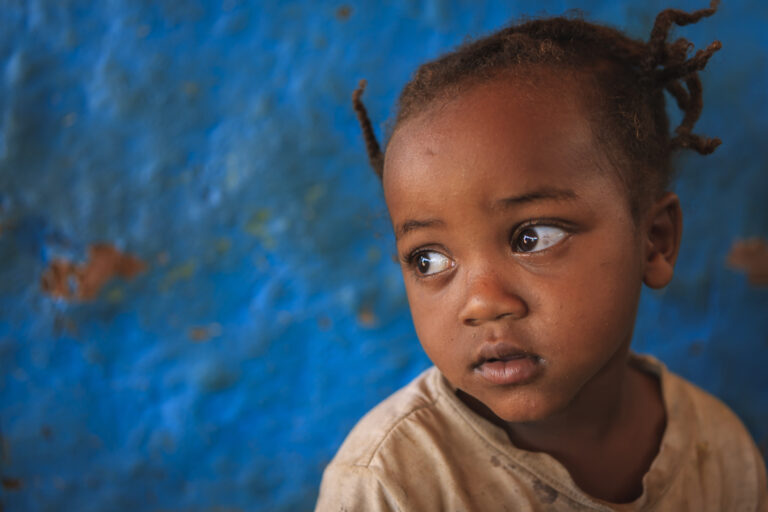The UN Population Division has projected October 12 as the day that the planet will be home to six billion people. PRI is responding to this good news with birthday preparations for “Baby Six Billion.” In addition to banners, streamers, and a birthday cake (stop by our Front Royal headquarters for a slice), PRI is preparing an information packet designed to help the media see clearly through the myth of overpopulation.
At the core of PRI’s information packet is a new publication called “The Facts of Global Depopulation” which shows that our greatest resource — people — is in short supply in country after country around the globe as birth rates fall and populations age. (Part of “The Facts” may be found on page 4 of this issue).
In addition to publishing “The Facts,” PRI is encouraging its members and supporters to draft letters to the editors of their local newspapers. We’re calling on our readers throughout the world to combat the disinformation disseminated by the population controllers and help to set the record straight.
The UN Population Fund (UNFPA) and Zero Population Growth (ZPG) have already begun their anti-people campaigns, seizing upon the Birth of Baby Six Billion to call upon the dying nations of the West for more money to promote (what else?] more contraception, sterilization, and abortion around the world (http://www.unfpa.org/modules/6billion/en/index.htm; http://www.zpg.org/Reports_Publications/Reports/report24.html).
They tell us that too many babies are being born to poor people in developing countries. Is it now a sin to be poor? Is a life lived at a per capita income of, say, $2,000 a year or below not worth living? If so, half the population of the planet must be, for its own good, eliminated. Their arguments are eerily similar to those of the Margaret Sanger-led eugenicists earlier in this century: Only the wealthy should be allowed to have children.
The BBC recently bemoaned the fact that Baby Six Billion will probably be born into a poor family in the developing world which already has two children. What they neglected to say was that this would be a traditional family, with a father and a mother, and that siblings are a greater joy than any toy. (Ask China’s generation of only children.)
But if I were giving up one of my children for adoption (God forbid), I would vastly prefer to have him adopted into an intact, loving family who already had one or two children, than by a couple of self-absorbed DINKS (Dual-Income, No Kids, by choice) who would promptly put him in day-care while they continued working to build up their bank accounts, and pay for their empty mansion and late-model car.
Endless container loads of “morning after” pills, condoms, sterilization equipment, IUDs, Norplant, and birth control pills continue to leave our ports bound for Africa, Asia and Latin America. But all the contraceptives in the world won’t solve Sudan’s problems, where the Muslim government in the north has decided to eliminate the Christian minority in the south. Nor will they stop Nigerian women from dying in childbirth only a few miles away from the nearest hospital emergency room for lack of roads and transport. Nor will they stop the AIDS epidemic now ravaging Zambia and Botswana, or malaria, which is returning with a vengeance to countries like Tanzania where it had earlier been almost eradicated.
These problems aren’t caused by too many people, but by corrupt governments in the developing world unconcerned with the real needs of their people, and by foreign aid programs that pay too little attention to real health problems like AIDS and malaria. History demonstrates that our greatest resource is people. Extraordinarily gifted people like Jane Austen and Louis Pasteur have helped to enrich civilization and to lengthen life spans. The fact is, however, everybody has something valuable to offer, in rich and poor countries alike.
Overpopulation is a myth. The greatest threat facing the world today is not too many babies, but too few babies. By 2050, persons aged 65 and above will be two-and-a-half times as numerous as children 15 years and younger. With longer life spans and fewer children being born in America, the population of America will begin to dramatically decline by 2030. The economic consequences of this rapid population aging will be closing schools, declining stock markets, and moribund economies. If overpopulation were real, we would see increased mortality rates and decreased life expectancy around the globe. In fact, we see just the opposite. Two hundred years ago, human life expectancy was under 30 years. Today it is over 65 years. As late as the 19th century, four out of every 10 children died before the age of five. Today under-five mortality is under 7 percent. Per capita food consumption is up, as a glut of grain threatens to bankrupt farmers everywhere. Productivity is up, poverty is down, and pollution is declining.
The world is, in many respects, a better place to live than it was a century ago. How can we be so selfish as to not welcome another baby into it? Join with us in celebrating the birth of Baby Six Billion.










